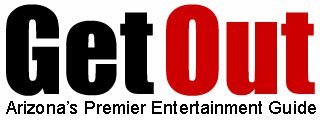
Director Turteltaub flubs relationships and motivations in new American folk tale
By CRAIG OUTHIER
Get Out
Jon Turteltaub is one of those rare filmmakers who can tackle any genre — from sentimental fantasy (“The Kid”) to searing psychological drama (“Instinct”) — and suck righteously in all of them. More astonishing still, he gets steady work. Which only proves the axiom: once you direct a cheap movie at a tidy profit — such as Turteltaub’s “Cool Runnings” (1993) — your Hollywood career credit is extended indefinitely.
For his next trick, Turteltaub applies his questionable talents to yet another genre: the family action-adventure. And while “National Treasure” — produced by Jerry Bruckheimer and starring Nicolas Cage as a patriotic fortune hunter — is hardly a failure, neither does it absolve Turteltaub of his past sins. Steady if unremarkable, it weds the cryptic intrigue of “The Da Vinci Code” with the campy derring-do of “The Goonies” and seals the union with Turteltaub’s rather leaden touch as a storyteller.
“National Treasure” makes its “Da Vinci Code” roots abundantly clear in the first scene, a 19th-century flashback involving a dying Founding Father who passes on a secret clue to an aide; a clue to the whereabouts of a magnificent fortune stashed away by Benjamin Franklin and other high-ranking Free Masons. The legend is passed down through successive generations of Gates men until it falls in the hands of Benjamin Gates (Cage), a rough-and-tumble academic regarded as a crackpot by the rest of the archeological community. Gates is estranged from his father, Patrick (Jon Voight), who bitterly gave up looking for the treasure years ago.
Excavating an early American warship buried under ice in Antartica, Gates finds another clue with sensational implications: the treasure does indeed exist, and its whereabouts are illustrated in invisible ink on the back of the Declaration of Independence. Gates’ shady British associate, Ian Howe (Sean Bean from “Patriot Games”), wants to steal the Declaration, but Gates refuses. Eventually, to save the priceless document from Howe, Gates decides to steal it himself, touching off a novel double-heist that constitutes the movie's most thrilling sequence.
Still, screenwriters Jim Kouf (“Rush Hour”) and Cormac and Marianne Wibberly (“Charlie’s Angels”) should be brought before the World Court for their choice of villains. C'mon, Eurotrash bad guys? That’s soooo “Die Hard.” And it makes you wonder if Bruckheimer and Turteltaub made Cage's love interest — National Archive executive director Abigail Chase (Diane Kruger from “Troy”) — a German immigrant so the movie would have one European non-villain, or because Kruger is incapable of doing a convincing American accent: “Eim ready vor mein close-up, Herr Turteltaub.”
Abigail’s nationality is less an issue than the numb, mechanical manner in which she and Gates strike up a romance. He rescues her from the clutches of the bad Europeans, she joins his cause, then they make a pit-stop at Urban Outfitters for new threads, where a coy curl of the toe in a fitting room stall shows us that, yep, she really is falling for this hunky treasure-nerd. Later, for no particular dramatic reason, they kiss, neatly demonstrating Turteltaub’s chief liability as a filmmaker: a fondness for sentimentality, but no sense of how to credibly stage it.
“National Treasure” has fun, free-wheeling moments, particularly when Gates and Abigail lead the villains on a historical scavenger hunt that takes them to revolutionary landmarks in Washington D.C., Philadelphia and New York City. But Turteltaub doesn’t pace himself; the subterranean finale is oddly anti-climactic, maybe because the movie begs comparison to “Raiders of the Lost Ark,” but has so much less meat on the spit.
Of all the hoary stereotypes piled on by Turteltaub and Bruckheimer (“Top Gun”), unquestionably the most irritating is Gates’ wiseacre, Gen X, techie dipwad sidekick, played by Justin Bartha of “Gigli.” Unwisely, the filmmakers entrust Bartha with comic relief duties in “National Treasure,” and the state of the union has never been more depressingly unfunny.
|




